May 28th, 2016 •
2 comments

Caffeine is a natural chemical that is found in the leaves and seeds of various plants such as coffee beans, cocoa beans, tea leaves, kola nuts, guarana and yerba mate. Caffeine is used in many common popular foods and drinks. It can be found in coffee, sodas, energy drinks, chocolate and even in certain medicines (further down this post I’ll provide you with a non-exhaustive overview to give you an idea). Adrenal fatigue caffeine? Read about your own adrenal fatigue and caffeine!
How about your adrenal fatigue caffeine intake?
Most people will agree on the short-term effects of caffeine. Caffeine is widely consumed to increase alertness and improve mood. And of course your adrenal fatigue caffeine intake is essential. Your adrenal fatigue and caffeine. It is a diuretic, which means that it increases the need to urinate and when taken near bedtime it can disrupt your sleep. Many sources consider 400 mg of caffeine (or 4 cups of coffee) safe for most healthy adults (),().
| Age in Years |
Stay below milligrams (mg)/day |
| Men and Women 19 and older |
400 |
Pregnant/Breastfeeding women 19 and older
|
200 |
Adrenal Fatigue Coffee: possible or not?
A question that a lot of you have been asking me is:
Should I be consuming my favorite cup of Joe when I suffer from or am susceptible to high levels of stress?
Your important Adrenal Fatigue Coffee, possible? Read about your Adrenal Fatigue and Coffee!
Here is my take:
Coffee, Caffeine, Stress & Adrenal Fatigue
Do you remember that in response to stimuli that are perceived as stressful the fight-or-flight system is activated and a bunch of neurotransmitters and hormones are released? When these hormones and neurotransmitters are released and activated, your concentration becomes more pointed and focused, your reaction time speeds up and both your strength and agility improve.
Your Epinephrine
And do you remember that as part of the fight-or-flight response your adrenal glands secrete two key hormones, Epinephrine (or adrenaline) and Cortisol? Epinephrine increases your heart rate, blood pressure and respiration rate. Cortisol on the other hand releases stored glucose, which you need in greater amounts during stressful times. As you can imagine, the ability to quickly access and use stored energy was e very helpful feature for our early ancestors. So while this is an excellent acute physiological response to an immediate threat (such as a being chased by a sabre-toothed tiger), it is a counterproductive response when the stress is chronic (as is the case with the cumulative demands of modern day life).
How to solve acute, real, physical, adaptive problems or threats?
Your fight-or-flight system is meant to help you solve acute, real, physical, adaptive problems or threats. Once the threat is eliminated and adrenaline and cortisol levels drop, your heart rate and blood pressure return to their normal levels, and your body and mind will return to a state of calm. But when stressors are always present and you constantly feel under attack, that fight-or-flight reaction stays turned on. The long-term activation of the stress-response system — and the subsequent overexposure to cortisol and other stress hormones — can disrupt your body’s processes leading to all sorts of stress-related health conditions.
So What About Caffeine & Stress?
While the exact mechanism still remains unclear, research shows that the consumption of caffeine or coffee stimulates the sympathic nervous system and further elevates your stress hormone levels, raising your body’s stress response. If you consume caffeine in the morning it impacts your body until bedtime, amplifying your stress levels throughout the day. Deceasing your caffeine intake will help to lower often exaggerated stress-reactions (),().
In other words, drinking coffee, re-creates stress conditions for the body!
So when you are suffering from or are susceptible to high levels of stress consuming caffeine will do you more harm than good. Note that when there are increased levels of stress-related hormones in your body insomnia and sleep disruption become more frequent (). In turn this been found to increase insulin resistance, which leads to abdominal obesity. But deposition of abdominal fat further increases the release of stress hormones, resulting in a dangerous positive feedback loop.
Stress and adrenal fatigue caffeine
The combination of stress & caffeine is not a very fortunate one as you have read so far. But there is more, the experience of stress and (heavy) coffee consumption has been shown to increase heart attack (independent of any other risk factors for heart disease) (), leads to a heightened vulnerability to depression (), and aggravates certain gastrointestinal conditions ().
Stress, adrenal fatigue and caffeine
Compounding the problem, people tend to consume more caffeine during stressful periods (as nearly everyone with a tight deadline knows well). This adds stress to stress, possibly making things even worse. In the tables below you may find a non-exchaustive list () of various foods, drinks and medicines that contain caffeine as well as the amount of caffeine.
Coffee & Caffeine
| Type of coffee |
Size* |
Caffeine** |
| *Sizes are listed in fluid ounces (oz.) and milliliters (mL).
**Caffeine is listed in milligrams (mg). |
| Brewed |
8 oz. (237 mL) |
95-200 mg |
| Brewed, decaffeinated |
8 oz. (237 mL) |
2-12 mg |
| Brewed, single-serve varieties |
8 oz. (237 mL) |
75-150 mg |
| Brewed, single-serve varieties, decaffeniated |
8 oz. (237 mL) |
2-4 mg |
| Espresso, restaurant-style |
1 oz. (30 mL) |
47-75 mg |
| Espresso, restaurant-style, decaffeinated |
1 oz. (30 mL) |
0-15 mg |
| Instant |
8 oz. (237 mL) |
27-173 mg |
| Instant, decaffeinated |
8 oz. (237 mL) |
2-12 mg |
| Specialty drink (latte or mocha) |
8 oz. (237 mL) |
63-175 mg |
Tea & Caffeine
| Type of tea |
Size* |
Caffeine** |
| *Sizes are listed in fluid ounces (oz.) and milliliters (mL).
**Caffeine is listed in milligrams (mg). |
| Brewed tea |
|
|
| Black tea |
8 oz. (237 mL) |
14-70 mg |
| Black tea, decaffeinated |
8 oz. (237 mL) |
0-12 mg |
| Green tea |
8 oz. (237 mL) |
24-45 mg |
| Iced tea |
|
|
| Instant, prepared with water |
8 oz. (237 mL) |
11-47 mg |
| Ready-to-drink, bottled |
8 oz. (237 mL) |
5-40 mg |
Sodas & Caffeine
| Type of soft drink |
Size* |
Caffeine** |
| *Sizes are listed in fluid ounces (oz.) and milliliters (mL).
**Caffeine is listed in milligrams (mg). |
| A&W Root Beer |
12 oz. (355 mL) |
0 mg |
| Barq’s Root Beer |
12 oz. (355 mL) |
16-18 mg |
| Coca-Cola |
12 oz. (355 mL) |
23-35 mg |
| Diet Coke |
12 oz. (355 mL) |
23-47 mg |
| Diet Pepsi |
12 oz. (355 mL) |
27-37 mg |
| Dr Pepper, regular and diet |
12 oz. (355 mL) |
36-42 mg |
| Mtn Dew, regular and diet |
12 oz. (355 mL) |
42-55 mg |
| Mug Root Beer, regular and diet |
12 oz. (355 mL) |
0 mg |
| 7UP |
12 oz. (355 mL) |
0 mg |
| Pepsi |
12 oz. (355 mL) |
32-39 mg |
| Sierra Mist, regular and diet |
12 oz. (355 mL) |
0 mg |
| Sprite, regular and diet |
12 oz. (355 mL) |
0 mg |
Energy drinks & Caffeine
| Type of energy drink |
Size* |
Caffeine** |
| *Sizes are listed in fluid ounces (oz.) and milliliters (mL).
**Caffeine is listed in milligrams (mg). |
| Amp, regular or sugar-free |
8 oz. (237 mL) |
71-74 mg |
| 5-Hour Energy shot |
2 oz. (60 mL) |
200-207 mg |
| Full Throttle, regular or sugar-free |
8 oz. (237 mL) |
70-100 mg |
| Red Bull, regular or sugar-free |
8.4 oz. (248mL) |
75-80 mg |
| Rockstar, regular or sugar-free |
8 oz. (237 mL) |
79-80 mg |
Other Products
| Type of product |
Size |
Caffeine* |
| *Caffeine is listed in milligrams (mg). |
| Medications |
|
|
| Excedrin Extra Strength |
1 tablet |
65 mg |
| NoDoz Max Strength |
1 tablet |
200 mg |
| Sweets |
|
|
| Chocolate chips, semisweet |
1 cup (168 grams) |
104 mg |
| Dark chocolate-coated coffee beans |
28 pieces |
336 mg |
| Energy mints |
2 mints |
95-200 mg |
Managing Stress By Reducing Caffeine & Coffee Consumption
No matter how you put it, caffeine creates a physical stress reponse. Therefore when you suffer from Adrenal Fatigue or high stress it is best to reduce or eleminate caffeine and coffee consumption from your diet. This will help your body to better repair from the effects of stress hormones and the damaging effects of chronic stress hormone secretion. Of all the lifestyle changes that people find hard to change, the most challenging is the consumption of coffee, because it is deeply entranched in cultural habits and because of the addictive component in coffee. To improve your chance to successfully quit coffee it is best that you find yourself a satisfying alternative and a way to slowly decrease your intake of caffeine in order to minimize possible withdrawel symptoms. Adrenal fatigue caffeine? Read about your own adrenal fatigue and caffeine!
The Basics ePackage
Recovery Workbook+Health Inventory List
$17
Reduce Stress
Reshape your Core Values
Dramatically Increase Your Energy
The Recovery ePackage
Complete Adrenal Fatigue Recovery Package
$37
Manage your Life
Focus on Results
Restore your Natural Energy
The Coaching ePackage
Complete Recovery Package+3Hrs Coaching
$397
Reclaim your Natural Energy
Understand your 6 Human Needs
Enhance the Joy in your Life



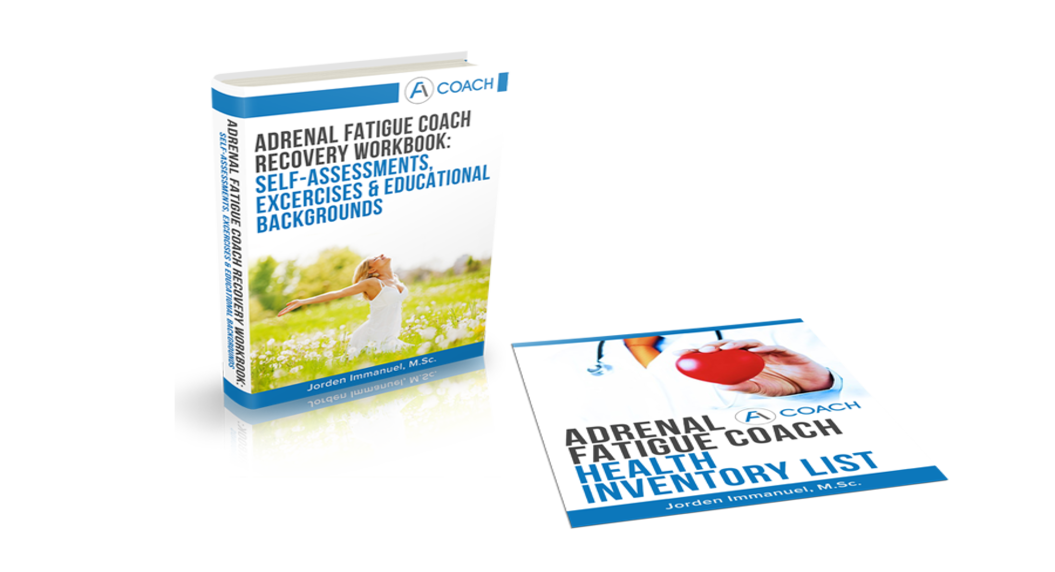

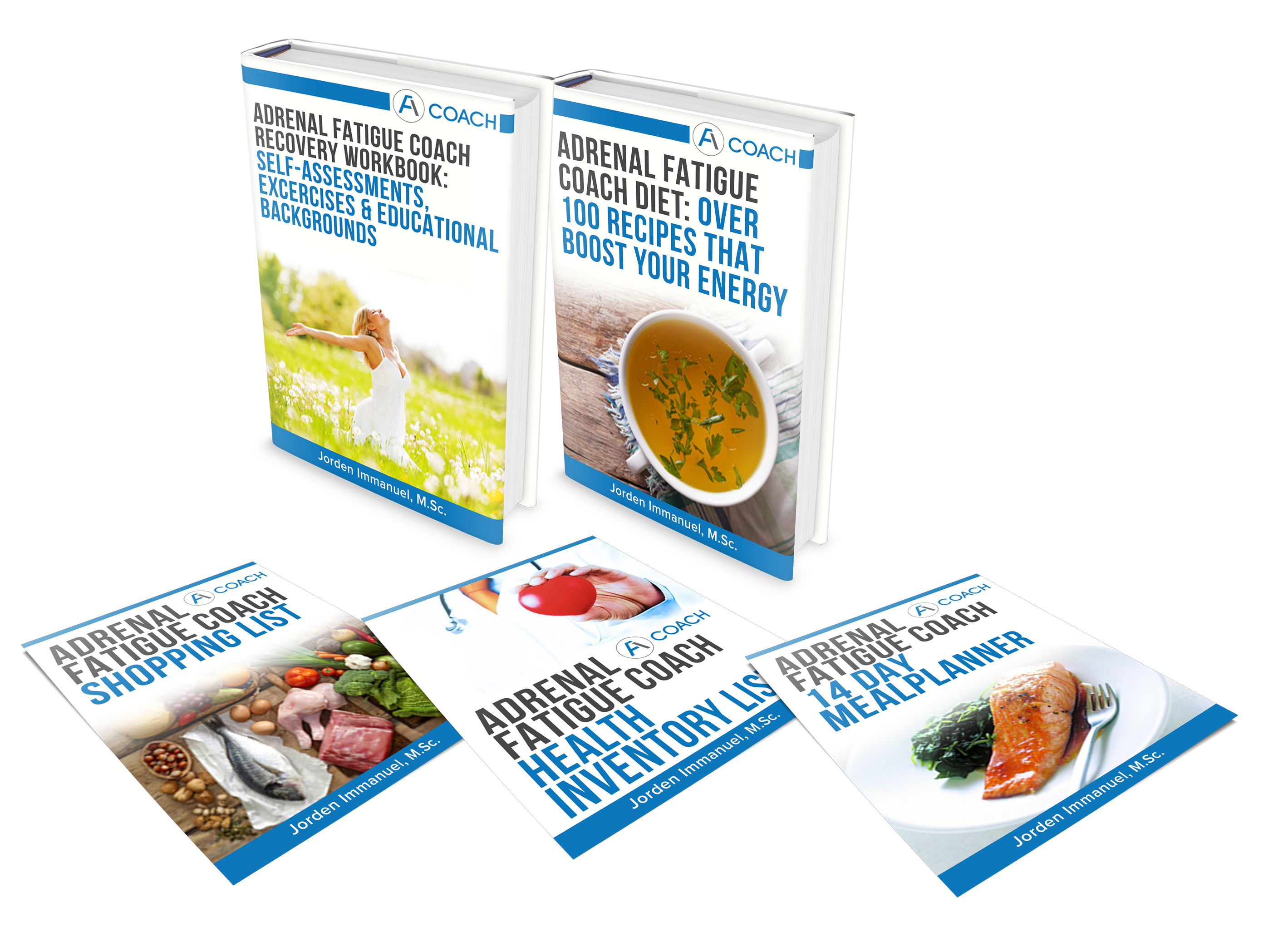
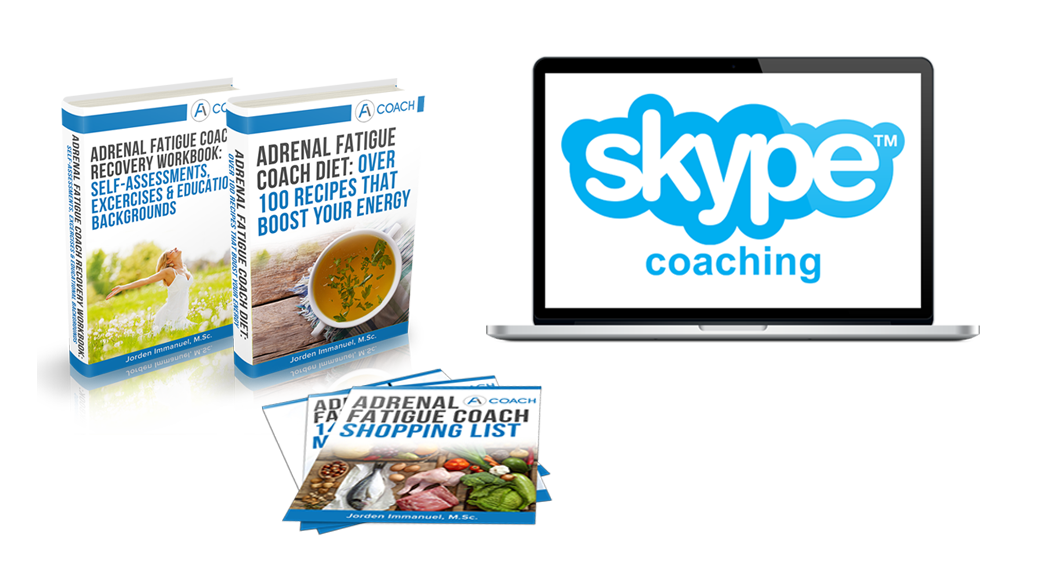
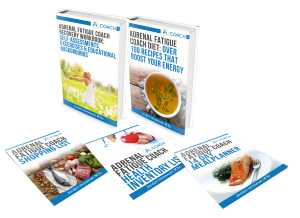




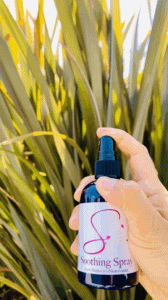

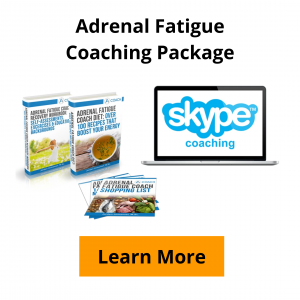
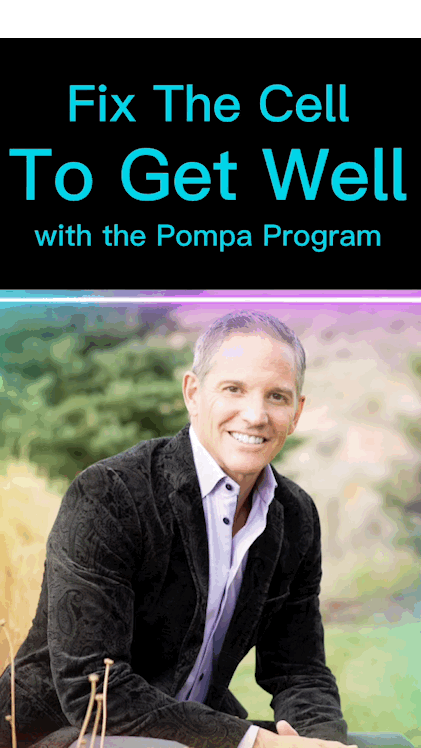

Somewhere I knew coffee was not really helpful in my situation, but this article really opened my eyes.
When I was reading this article, I was already on my third cup of coffee today!
thanks for writing this post
Hi An, thanks for the comment. Happy to read that you like my article!